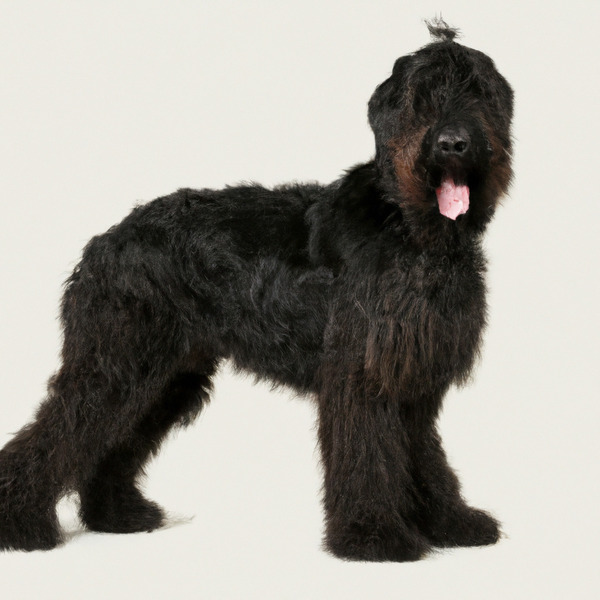Black Russian Terrier vs. German Wirehaired Sprointer: Breed Differences and Similarities
Hypoallergenic
Are Black Russian Terriers or German Wirehaired Sprointers hypoallergenic, or neither?
Unfortunately, neither Black Russian Terrier nor German Wirehaired Sprointer are hypoallergenic, which may not make them the best choice for dog lovers who suffer from pet allergies.
Temperament
What are the personalities of Black Russian Terrier and German Wirehaired Sprointer dogs?
Brave
Energetic
Lively
Confident
Stable
Affectionate
Gentle
Independent
Cheerful
Playful
Defensive
Social
Active
Playful
Energetic
Alert
Intelligent
Friendly
Responsive
Affectionate
Loyal
Social
Cheerful
Willful
Shedding Level
Do Black Russian Terriers shed more than German Wirehaired Sprointers, or which breed sheds more, Black Russian Terriers or German Wirehaired Sprointers?
Black Russian Terriers shed very little hair, making them a great choice for those who dislike excess hair in the house.
German Wirehaired Sprointers are moderate shedders, but regular brushing can reduce shedding and maintain coat health.
Origin
What is the origin of Black Russian Terrier and German Wirehaired Sprointer dog breeds?
Russia
United States
Ancestry
What are the origins of Black Russian Terrier and German Wirehaired Sprointer breeds?
Schnauzer, Rottweiler, Airedale, Russian Water Dog
German Wirehaired Pointer and English Springer Spaniel
Date of Birth
When were Black Russian Terrier and German Wirehaired Sprointer breeds first developed?
1940s
Unknown
Eye Color Possibilites
What are the eye colors of Black Russian Terrier and German Wirehaired Sprointer dogs?
Brown
Brown
Nose Color Possibilites
What are the natural nose colors of Black Russian Terrier and German Wirehaired Sprointer?
Black
Black
Brown
Coat Color Possibilites
What are the natural colors of the coat for Black Russian Terrier and German Wirehaired Sprointer breeds?
Black
White
Brown
Black
Pied
Coat Length
What is the typical coat length for Black Russian Terrier and German Wirehaired Sprointer breeds?
Black Russian Terriers have longer coats compared to most dogs.
German Wirehaired Sprointers have short coats.
Coat Density
What is the density of the coat of Black Russian Terrier and German Wirehaired Sprointer?
Coat Texture
What is the hair texture of Black Russian Terrier and German Wirehaired Sprointer?
Wavy
Wiry
Litter Size
What is the usual litter size for Black Russian Terrier and German Wirehaired Sprointer?
A Black Russian Terrier can have a litter of 10-14 puppies on average. However, it's worth noting that the size of the litters can vary greatly. Factors that can influence litter size include the health of the mother, breeding history, and genetics.
A German Wirehaired Sprointer can have a litter of 6-10 puppies on average. However, it's worth noting that the size of the litters can vary greatly. Factors that can influence litter size include the health of the mother, breeding history, and genetics.
Adaptability
Black Russian Terriers have average adaptability to changes in lifestyle and living environments compared to other breeds.
German Wirehaired Sprointers are highly adaptable and versatile, making them excellent companions for families and individuals of all lifestyles.
Health Issues
Between Black Russian Terrier and German Wirehaired Sprointer, which breed is more prone to health problems?
Black Russian Terriers are susceptible to health issues like all breeds, so it's important to monitor their health and seek veterinary care when needed.
While the German Wirehaired Sprointer breed is generally healthy, occasional vet check-ups are still necessary to address any health concerns.
Major Concerns
What are the major health concerns for Black Russian Terrier and German Wirehaired Sprointer breeds?
Progressive Retinal Atrophy
Hip And Elbow Dysplasia
Urinary Crystals and Stones
Retinal Dysplasia
Seborrhea
Hip Dysplasia
Phosphofructokinase (PFK) Deficiency
Minor Concerns
What minor health issues should be kept in mind when owning Black Russian Terrier and German Wirehaired Sprointer?
Environmental Allergies
Food Allergies
Entropion
Ectropion
Progressive Retinal Atrophy
Cataracts
Diabetes
Skin Fold Dermatitis
Patent Ductus Arteriosus
Corneal Dystrophy
Cutaneous Asthenia
Occasional Tests
What occasional tests are recommended for Black Russian Terrier and German Wirehaired Sprointer breeds?
Complete Physical Examination
Eye and Ear Examination
Allergy Testing
Abdominal Ultrasound
Hip and Elbow X-rays
Hip X-Rays
Dna For Phosphofructokinase Deficiency
Eye Examinations
Blood Work
Social Needs
Black Russian Terrier vs German Wirehaired Sprointer social needs comparison
Black Russian Terrier has average social needs and is less independent than other breeds.
German Wirehaired Sprointer has above average social needs and thrives with interaction with humans and other dogs.
Sleeping Need
Which of the two sleeps the most/least: Black Russian Terrier or German Wirehaired Sprointer?
Black Russian Terriers sleep less than other breeds but still need adequate sleep for good health.
German Wirehaired Sprointers are active and require sufficient sleep to stay healthy.
Mouthiness
Mouthiness Comparison: Black Russian Terrier vs German Wirehaired Sprointer?
Roaming urge
Black Russian Terrier vs Labrador: Running away tendency?
Prey Drive
Black Russian Terrier or German Wirehaired Sprointer - which breed has a higher level of prey drive?
Activity Level
Which breed has higher energy, Black Russian Terriers or German Wirehaired Sprointers?
Black Russian Terriers are medium-energy dogs and typically enjoy socializing and playing casual or even sustained games of chase with other dogs. They may also have occasional periods of barking or racing around the house.
German Wirehaired Sprointers are high-energy dogs. They need mental as well as physical exercise. These dogs require a lot of your involvement and without it they can, and will, become problematic dogs.
Tolerance of being left alone
Walks per Week
How many miles should Black Russian Terrier or German Wirehaired Sprointer walk each week?
There's really no limit to how far you walk your dog as long as they're comfortable. For Black Russian Terrier, it's at least 10 miles / week. Just remember to build distance and stamina gradually over time.
There's really no limit to how far you walk your dog as long as they're comfortable. For German Wirehaired Sprointer, it's at least 12 miles / week. Just remember to build distance and stamina gradually over time.
Activity per Day
Do Black Russian Terriers or German Wirehaired Sprointers require more exercise?
In general most Black Russian Terriers usually need at least 60 minutes of exercise daily. This can be spread across the day and include all sorts of high-energy activities, like walking, running and playing.
In general most German Wirehaired Sprointers usually need at least 120 minutes of exercise daily. This can be spread across the day and include all sorts of high-energy activities, like walking, running and playing.
Grooming
Which breed is easier to maintain in terms of grooming, Black Russian Terriers or German Wirehaired Sprointers?
The Black Russian Terrier requires an average amount of grooming compared to other breeds.
German Wirehaired Sprointers require significant grooming, including regular trims and professional grooming assistance to maintain their coat. They may also require frequent bathing to keep their coat and skin healthy.
Brushing Frequency
What is the recommended brushing frequency for Black Russian Terrier and German Wirehaired Sprointer dogs?
Ideally, Black Russian Terrier should be brushed at least 2 or 3 times a week (preferably daily) improve shedding.
German Wirehaired Sprointer should be brushed at least once a week. Of course you can give them more frequent brushes if you find that they are still shedding a lot
Brushing Tools
What brushing tools are used for Black Russian Terriers and German Wirehaired Sprointers?
Pin Brush
Dematter
Comb
Nail Clipper
Pin Brush
Slicker Brush
Nail Clipper
Cups
How much food should be given to Black Russian Terrier or German Wirehaired Sprointer in cups?
Black Russian Terrier and German Wirehaired Sprointer share the same recommended daily food intake of 3 cups, although the appropriate quantity may vary depending on the quality and nutritional content of their food.
Daily Cost
Which breed has a higher daily cost, Black Russian Terrier or German Wirehaired Sprointer?
The average cost of a Black Russian Terrier is somewhere $2.80 - $3.20 per day.
The average cost of a German Wirehaired Sprointer is somewhere $2.10 - $2.70 per day.
Monthly Cost
Which breed has a higher monthly cost, Black Russian Terrier or German Wirehaired Sprointer?
The average per month expenses of a Black Russian Terrier is between $84 - $95. This makes an average of $1008 - $1140 per year. It will be on the higher side when the dog is still small because it will need more frequent visits to the vet, shots.
The average per month expenses of a German Wirehaired Sprointer is between $55 - $73. This makes an average of $660 - $876 per year. It will be on the higher side when the dog is still small because it will need more frequent visits to the vet, shots.
Sensitivity Level
How do Black Russian Terrier and German Wirehaired Sprointer compare in sensitivity?
These breeds are more sensitive than others and easily overwhelmed by new surroundings and people. Black Russian Terrier and German Wirehaired Sprointer need gentle handling and a calm, stable home environment with positive reinforcement training.
Apartment Friendly
Which breed is more apartment-friendly: Black Russian Terrier or German Wirehaired Sprointer?
Black Russian Terriers and German Wirehaired Sprointers are dogs that do well in apartments with sufficient exercise, but they would really appreciate a small yard.
Child Friendly
Do Black Russian Terriers or German Wirehaired Sprointers have a friendlier temperament towards children?
Black Russian Terriers have an average level of friendliness towards children.
German Wirehaired Sprointers are good with kids if socialized and trained from a young age.
Senior-friendly
Which dog is more suitable as a pet for the elderly - Black Russian Terrier or German Wirehaired Sprointer?
Cat Friendly
Do Black Russian Terrier or German Wirehaired Sprointer breeds have a better compatibility with cats?
Black Russian Terriers are average in their friendliness toward cats and tend to do well with them, especially if raised together.
German Wirehaired Sprointers are somewhat cat friendly and can be trained to get along with cats.
Dog Friendly
Which breed is more sociable with other dogs: Black Russian Terrier or German Wirehaired Sprointer?
Black Russian Terriers are average in their friendliness towards other dogs, and socialization can help.
German Wirehaired Sprointers are generally very friendly towards other dogs, with a happy and affectionate temperament.
Pet friendly
How do Black Russian Terrier or German Wirehaired Sprointer dogs interact with other pets?
Stranger Friendly
Which breed is more friendly with strangers: Black Russian Terrier or German Wirehaired Sprointer?
Black Russian Terriers are not very stranger friendly.
German Wirehaired Sprointers are highly friendly around strangers.
Playfulness
Which breed is more playful between Black Russian Terrier and German Wirehaired Sprointer?
Black Russian Terriers have an average level of playfulness, enjoying playtime like most dogs but not excessively so.
German Wirehaired Sprointers are very playful, so adopting an older one might be a better option for a more relaxed experience.
Trainability
How do the trainability levels of Black Russian Terriers and German Wirehaired Sprointers compare?
Black Russian Terrier and German Wirehaired Sprointer dogs are known for their ease of training and ability to learn quickly, making them a popular choice for pet owners and trainers alike.
Compare Black Russian Terrier with other breeds
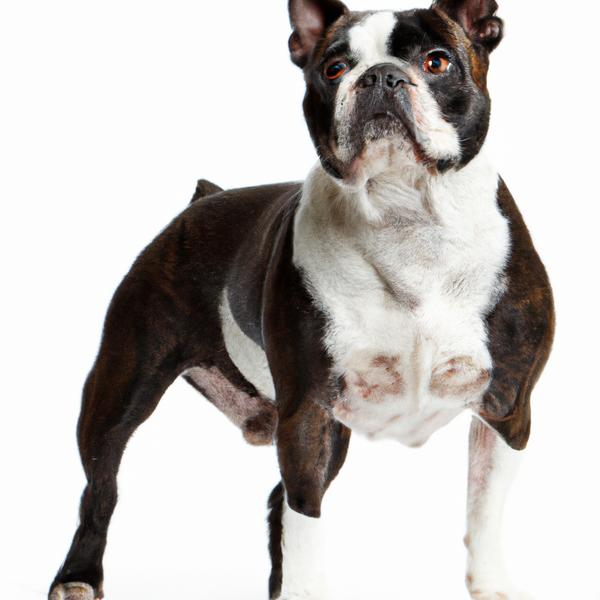
English Boston-Bulldog
Black Russian Terrier vs English Boston-Bulldog
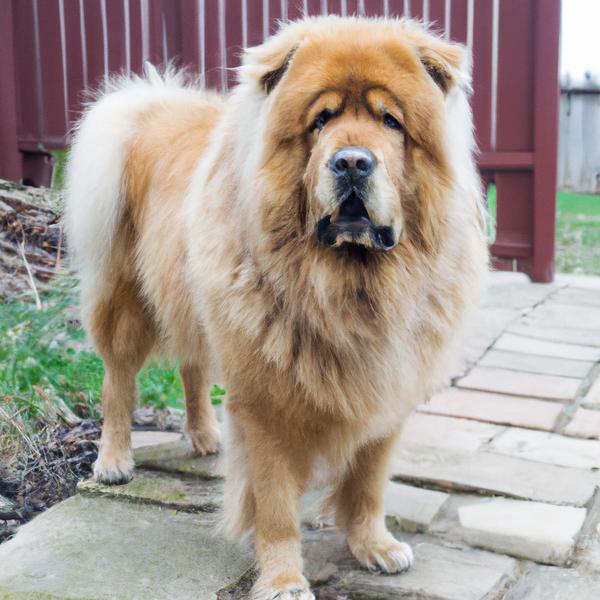
Golden Chow Retriever
Black Russian Terrier vs Golden Chow Retriever
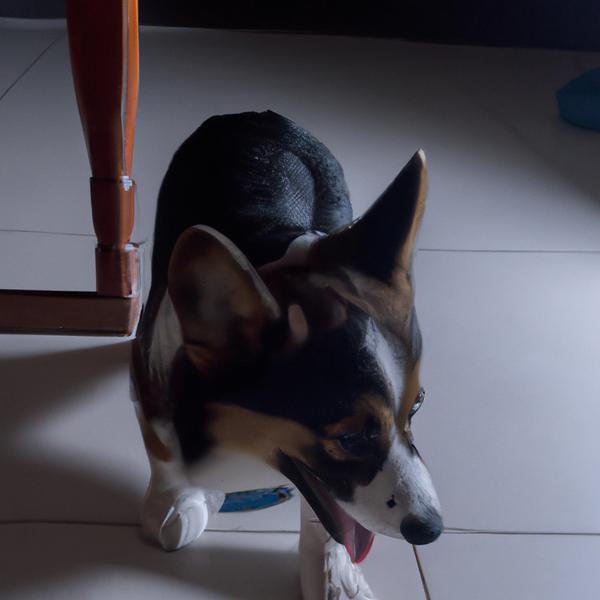
Borgi
Black Russian Terrier vs Borgi
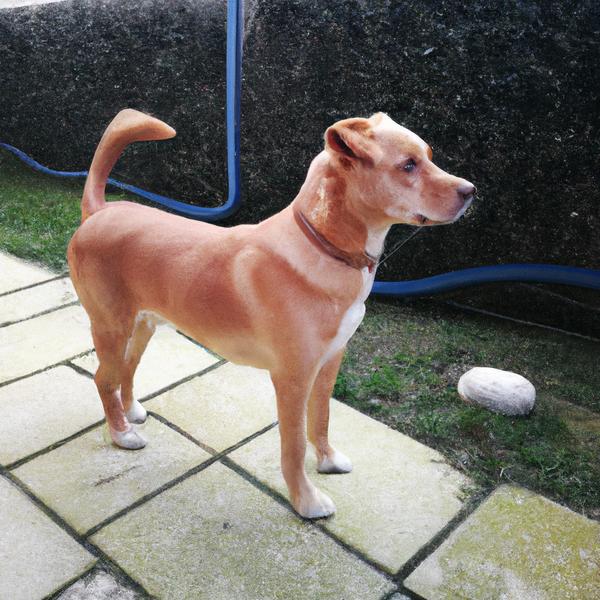
Cursset
Black Russian Terrier vs Cursset
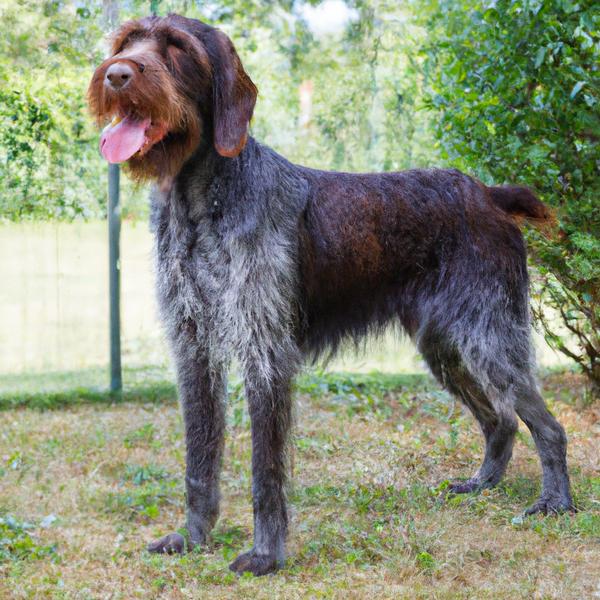
German Wirehaired Sprointer
Black Russian Terrier vs German Wirehaired Sprointer
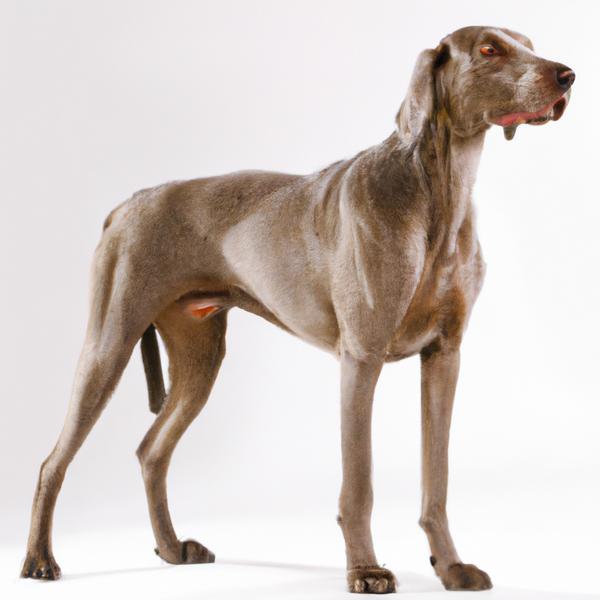
Mauzer
Black Russian Terrier vs Mauzer
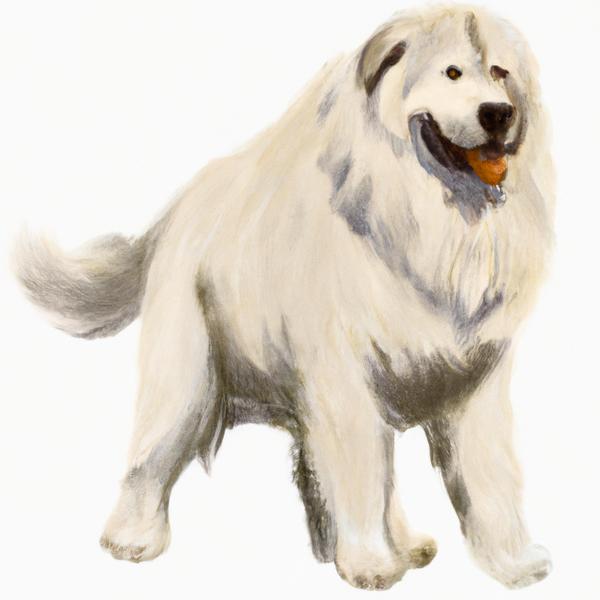
Powderpap
Black Russian Terrier vs Powderpap
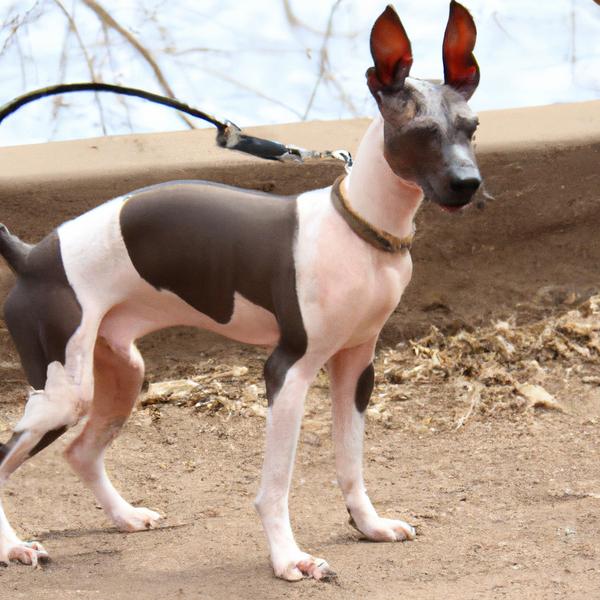
Whippig
Black Russian Terrier vs Whippig
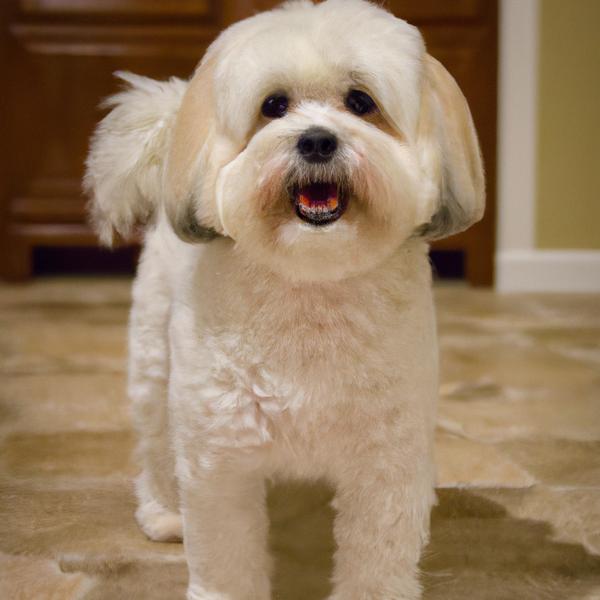
Zuchon
Black Russian Terrier vs Zuchon
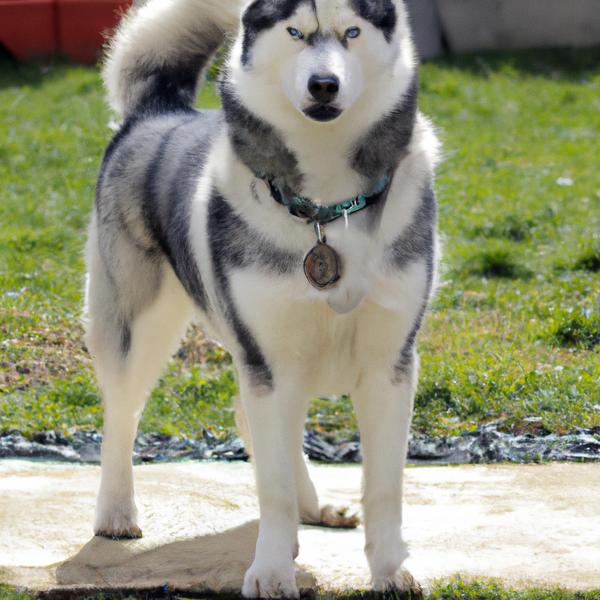
Ausky
Black Russian Terrier vs Ausky
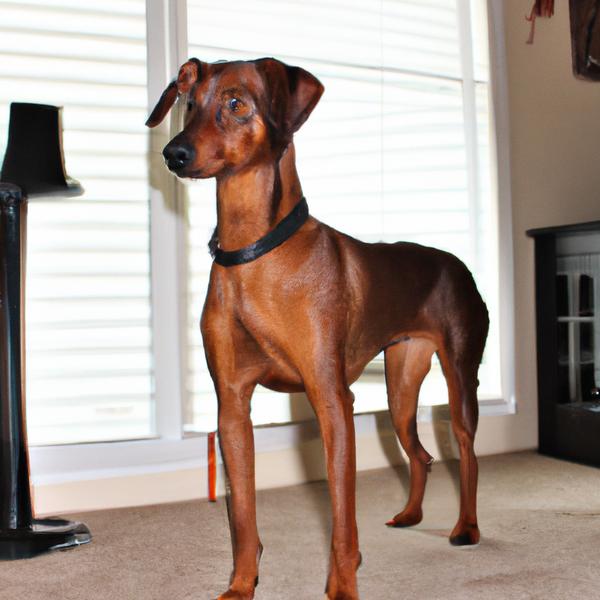
Patterbea
Black Russian Terrier vs Patterbea
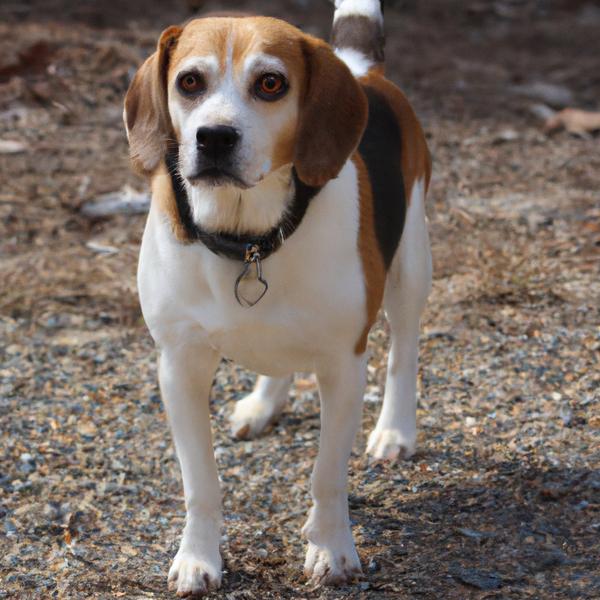
Beagle Point
Black Russian Terrier vs Beagle Point
